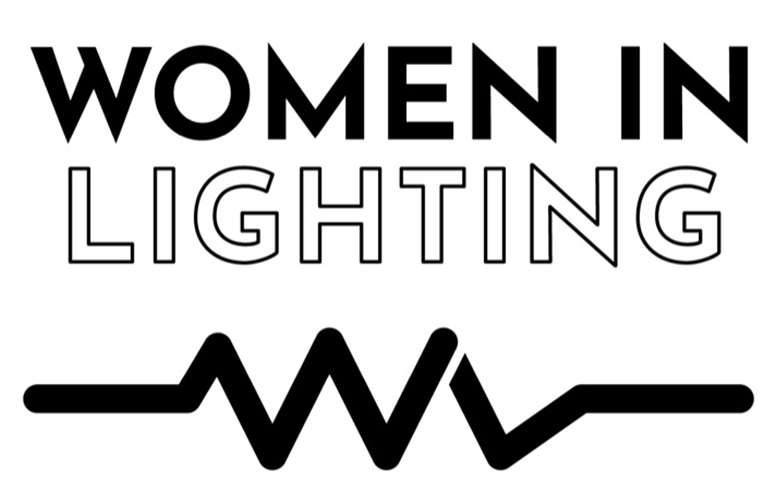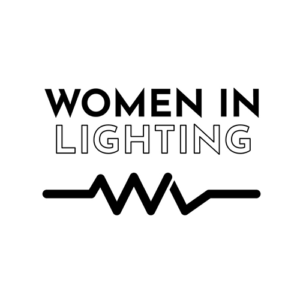
Walking into an art installation, have you ever felt being teleported to a whole new world? A world where visual & physical boundaries seem to blur out & slowly you become more present in the moment. That’s the power of art & artists are true magicians in designing those surreal experiences. Although Light Art, became a dedicated art form around 20th Century after the Light-Space movement, it has gradually gained momentum by exceptional works of some brilliant light artists. One such light magician who is recognized in ‘9 brilliant Light Artists you need to know’ is Jacqueline Hen, winner of International Light Art Award 2019 for her installation ‘LIGHT HIGH’. Fortunate enough, I got to interview Jacqueline for R.A.W Series to understand her journey as a light artist.
Can you tell us briefly about your initial school/university life as a designer?
I studied “visual communication” with a focus on “designing spatial systems/exhibition design.” I’ve always been very interested in analyzing spaces and reimagining their purpose and qualities. I did two internships working in scenography for film production during my teens and enjoyed that a lot. I knew that I wanted to study something “space” related since my teens. I wasn’t sure if architecture would be the right thing – without really knowing much about it as a 17-year-old, so when it was time to decide which path to apply for, I decided to go for spatial design.
When did you decide to start experimenting with light? Was there any specific incident/person that you met inspired you in your career-choice as a (light) artist?
I can’t say that it was an active choice to become a (light) artist. I was fortunate to study in an environment where I could pursue projects that were of great interest to me without overthinking about categories in the first place. Experimenting with light, as well as many other media, was a part of that journey. Looking back from today, growing up, I can see many situations where I was fascinated by light, as the “speed of light,” observing the refraction of light in the swimming pool, or experiencing a room filled with fog and light. I was for sure deeply impressed by the works of artists like James Turrell or Anthony McCall when I came across them in my early twenties, but I can’t narrow it down to a specific incident or person.
As a research assistant at Fraunhofer Center, what was the kind of work you were associated with?
As a research assistant at Fraunhofer Center for Responsible Research and Innovation Berlin, I was concerned with Technology Transfer Research, Process Design, Transformative Methods. The main project I worked on was the development of interactive holographic interfaces for touch devices.
JUWL – Interactive Hologram – Fashion Tech Berlin 2017
Did you face any obstacles as a female designer in your early days while pursuing your career? If yes, how did you overcome?
In some environments, I feel like it’s harder to be taken seriously as a young woman, especially in the tech industry. I remember presenting a technological prototype at an important tech fair after working day and night for months. A businessman approached me and told me that he wants to speak to the “person in charge,” assuming I’m a hostess and can’t possibly be the person he is looking for. After reassuring him several times that I am the one in charge, he left in disbelief. Becoming aware of toxic-masculinity-systems led me to become more selective of the professional environment I surround myself with and build networks of my own.
What was the very first experiment/project with light like? Can you elaborate & share your experience?
The first time I remember actively experimenting with light was during my second year of studies at the University of the Arts in Berlin. We were asked to design concepts for artistic interventions in a suburb of prefabricated housing (Plattenbau) located at the periphery of Berlin, built in the 1960s. Confronted with the heaviness of textures and patterns manifested in concrete, I felt inspired to experiment with light and inflatables.
What is your thought process in developing any kind of light-art installations? Any specific preference to materials/colors/techniques that you have?
I usually start with “absorbing” the space for which the light-art installation is developed; What are the characteristics (smell, materials, textures, height, etc.) of the space? What is the historical and current use of the space? How do people move through space? With which expectations do visitors approach the space? (Restrictions? How to work around them? Budget?) Concept, Materials, Techniques unfold from there.
Inversion – Evi Lichtungen – International light art biennale 2020
Why do you think that light is an important part of the artwork that you create?
When creating an artwork, I aspire to create a moment of irritation: a slight glitch to experience contingency. Through this, the habitual perception of space and reality might be questioned by the visitor. For me, light is an excellent medium to create those spaces because it lets you shape the attention in a space.
Any specific project that is very dear to you?
The project “Light High” is very dear to me for many reasons. I made the concept for the work years ago. Ever since, it was “just” stuck on my computer hard drive. A while ago, during a design seminar I taught, I showed parts of the concept to a student of mine. He asked me if I’m planning on ever realizing it. That led me to start looking for opportunities to do so, and ended up being one of the finalists for the international light art award. The work is also special to me because it is one of the most complex ones, I was lucky to realize so far. The construction time was very intense. Its realization wouldn’t have been possible without the enormous support of old and new friends I found through the project and the wonderful team of the center for international light art.
LIGHT HIGH – Centre for International Light Art, Germany
Can you tell us about any feedback that you get from general public that makes you feel happy about the work that you are doing & makes you realize the difference you are making through your artworks?
It is so great to watch the visitors interact with the installation and see their reactions and emotions. And also, to realize that a certain art piece is always more than you had thought of yourself. (The art work becoming a life of it’s own)
Who is your favorite light-artist & why?
I can’t narrow it down to one single artist because there are just too many exciting artworks. As a young adult, the first light artist that caught my attention were James Turrell and Olafur Eliasson. I remember visiting the exhibitions “Take your Time” by Eliasson at Moma New York 2008 and “The Wolfsburg project” by James Turell at Kunstmuseum Wolfsburg in 2009. I was deeply impressed by both exhibitions and the way the artworks challenged my perception of space. Today, I also really like artworks from artists like Brigitte Kowanz, Dan Flavin, Anselm Reyle, Karolina Halatek, Carlos Cruz-Diez, to only name a few.
Looking back at your journey as an artist & making remarkable contribution to the lighting industry, what is the one thing (quote, belief) that keeps you going?
General curiosity, experimenting, understanding, reimagining, making the imagination of other presences and futures feasible
As a female designer did you have any experiences which were more gender-biased?
I feel like I was lucky that nothing ever really traumatizing or heavily disappointing happened to me. (Which in itself says a lot about the treatment of women). It’s more those small, subtle situations in everyday life that sometimes make me feel treated differently. Like being repeatedly interrupted in a conversation, mansplaining, noticing two businessmen talking about my butt during an important presentation instead of paying intention, or being told, “oh, but you are a woman and sure want to have kids” during budget negotiations with a 50-something-year-old man.
Lastly, what message would you like to convey to the upcoming generation of light-artists?
Don’t try to fit into boxes; this is something others will do for you if you like it or not. Follow your curiosity and do things that are meaningful to you; that’s how the boxes will fit you rather than the other way.
An incredible designer, Jacqueline is redefining spatial perceptions, one light installation at a time. You can read more about her amazing work at jacquelinehen.de
Published in Collaboration with: Women in Lighting

The Accidental Feminist: One Man’s Story
Laura Bayliss: Health, Light & Paint


Women In Lighting is an inspirational digital platform for women working in lighting to promote their passion and achievements, narrate their career path and goals, celebrate their work and elevate their profile in the lighting community. Women in Lighting are working closely with WILD. WILD's mission is to provide the lighting community with an inclusive and open environment for professional and personal growth by offering networking, mentorship, and knowledge sharing. Women in Lighting and Design is open to all women, those that identify as female, and their allies, creating a supportive and safe network for all.
Read Full Profile© 2021 TheatreArtLife. All rights reserved.

Thank you so much for reading, but you have now reached your free article limit for this month.
Our contributors are currently writing more articles for you to enjoy.
To keep reading, all you have to do is become a subscriber and then you can read unlimited articles anytime.
Your investment will help us continue to ignite connections across the globe in live entertainment and build this community for industry professionals.